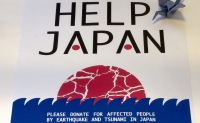NATO Grapples with Soft Power
BRUSSELS --- Since its founding in 1949, NATO has been a bastion of hard power, first as an alliance arrayed against the Soviet Union and its Warsaw Pact allies, and more recently as a manifestation of Western muscle in conflicts such as Kosovo in 1999 and Libya in 2011. Coming off its decisive performance in helping to end the rule of Muammar Qaddafi, NATO seems to be happily basking in macho glory. Read More









